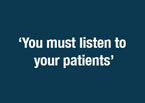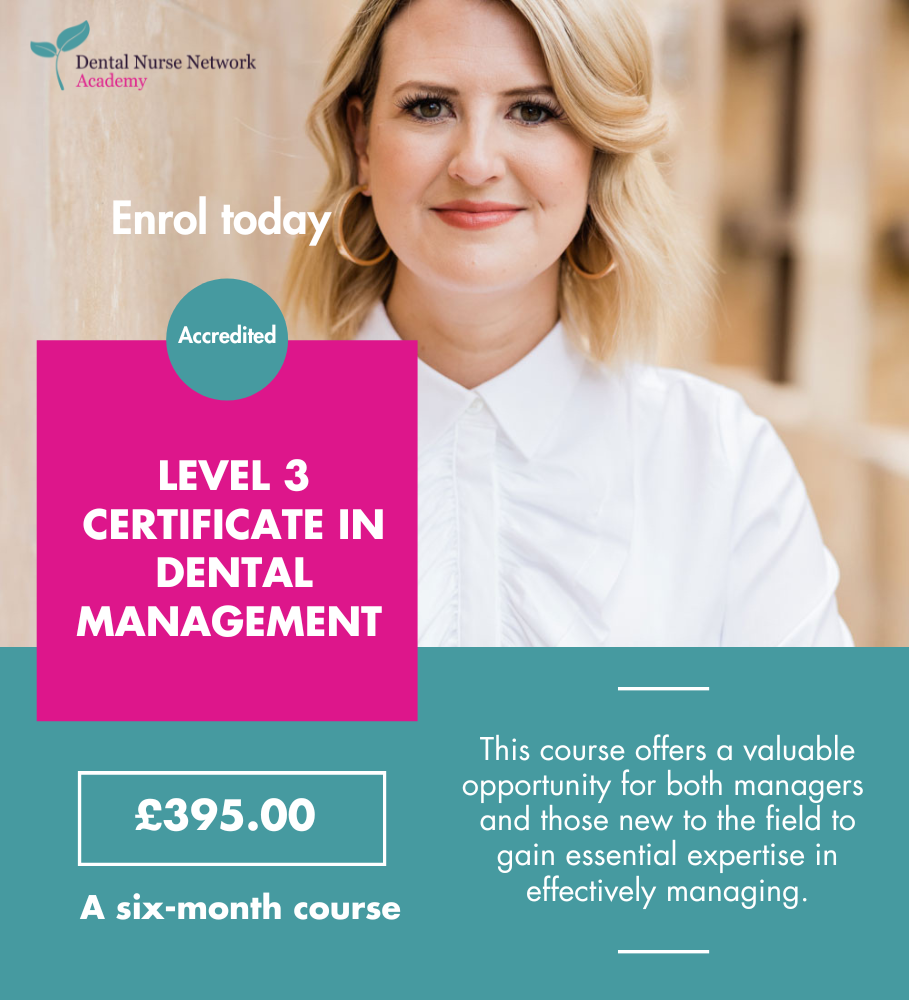 As Dental Care Professionals (DCPs) we are actively aware of the governing bodies that regulate the industry. We have to come to know in detail the CQC outcomes and what is required of us during inspection, we all follow the government guidelines involving HTM 01:05 documents, and we all follow our own in-house codes of practice.
As Dental Care Professionals (DCPs) we are actively aware of the governing bodies that regulate the industry. We have to come to know in detail the CQC outcomes and what is required of us during inspection, we all follow the government guidelines involving HTM 01:05 documents, and we all follow our own in-house codes of practice.
These are just a few of the things that we have to consider in day-to-day practice.
This article will look at the General Dental Council (GDC) Standards for the Dental Team 2013 (www.gdc-uk.org). This document is in place to ensure that patients receive the best possible care and attention, and its contents should be incorporated into every aspect of the running of a dental practice. Belonging to a professional body means that we have a professional responsibility for our actions at all times.
With a 110% increase in complaints to the GDC between 2010 and 2014 (www.gdc-uk.org), the importance of following the GDC Standards is a more pertinent topic than ever. This dramatic increase is due to a variety of factors, but ultimately we have to recognise that patients have both the confidence to voice any grievances and an accessible method of doing so. Confidence amongst patients has grown in terms of their perception of themselves as ‘consumers’ rather than merely patients; if they are not happy with the service they are paying for, then they will tell someone about it. With a few clicks of a computer keyboard, the GDC can be made aware of any failings in the services we provide as DCPs.
The Standards document contains nine overarching principles that all dental professionals must adhere to at all times. For each principle, the document provides: a list of what the patients can expect from DCPs (‘Patient expectations’); a list of what DCPs are expected to do to maintain them (‘Standards’); and detailed advice to assist DCPs to comply (‘Guidance’). As an example, Principle 1 instructs that we must: ‘Put patients’ interests first’. Standards relating to this principle include: taking ‘a holistic and preventative approach to patient care which is appropriate to the individual patient’ (1.4); treating all patients ‘with dignity and respect at all times’ (1.2); and treating patients ‘in a hygienic and safe environment’ (1.5). These are things that every member of the team will agree are a ‘common sense’ approach to patient care, and are notions we are familiar with from our first days as dental nurses. Standard 1.1 states that ‘You must listen to your patients’. For many patients, just setting foot inside a dental practice is in itself a cause of anxiety, so they must feel comfortable voicing their concerns, and talking through any treatment they may be facing. This is one of the key values a DCP must bear in mind to ensure that an overall ‘holistic’ approach is taken to treatment, and that the needs of the patient have been put before anything else.
Principle 2, ‘Communicate effectively with patients’, is again a fundamental aspect of dentistry. The first patient expectation relating to this principle is that patient should expect ‘To receive full, clear and accurate information that they can understand, before during and after treatment, so that they can make informed decisions in partnership with the people providing their care’. Once again, this is a clear instruction that will also be part of any initial training when you join a dental practice. To be able to relay information clearly to your patient will allow them to make informed choices about their treatment plan, understand any costings involved and guarantee that they will leave the practice feeling confident they have been treated in keeping with their best interests.
Due to the time constraints on each appointment, it can often fall upon the dental nurse to converse with the patient about what they should expect - so the ability to give clear advice is not just the responsibility of the dentist. We are often required to give guidance when the dentist is not available, again demonstrating the importance of being able to successfully follow the GDC Standards.
Principle 3 is that we should ‘Obtain valid consent’ from the patient. Although this can be considered more in keeping with the duties of the dentist, Standard 3.2 states that we must ‘Make sure that patients (or their representatives) understand the decisions they are being asked to make’. This is a duty that all DCPs share. This goes hand in hand with successful communication under Principle 2, as a patient cannot be considered to have given ‘valid consent’ if they are not absolutely clear as to what they are consenting to. The guidance under Principle 3 again asks us to be mindful of the needs and interests of the patient, covering all the different treatment options available to them and providing a breakdown and explanation of costs, amongst other things (3.1.3). It reminds us that: ‘Giving and obtaining consent is a process, not a one-off event. It should be part of an on-going communication between patients and all members of the dental team involved in their care’ (3.3.1). Documentation of obtained consent is vital in complying with the GDC standards. Although this will be undertaken predominantly by the dentist, as dental nurses we are there to bear witness to this taking place, and to make sure it is correctly recorded. This highlights how all members of staff need to be well-informed of the expectations of the GDC as well as their own in-house codes of conduct or guidelines.
The GDC Standards and the principles within them are such an important element of day-to-day practice within a dental surgery that it is imperative that we frequently refer back to them. This can be done by individually re-reading them, or using them as a basis for staff meetings or training sessions. As obvious as their instructions may seem, it is clearly apparent from rising complaint figures that they are not always correctly followed. The GDC Standards are a helpful tool in maintaining high standards of professionalism, so should be treated as a form of ‘guidebook’ by all members of the team.
Amy Shipham BA, RDN

